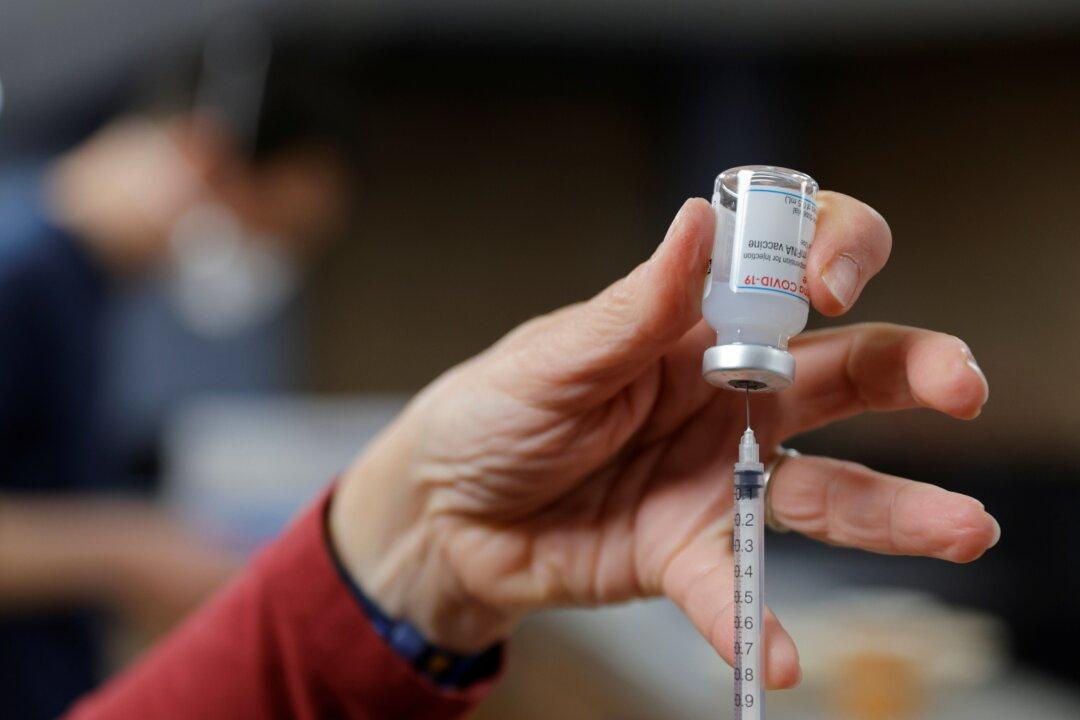College students across the United States will take part in a new study that will test how effective Moderna’s COVID-19 vaccine is in preventing transmission of the CCP (Chinese Communist Party) virus.
Two separate cohorts of 6,000 students will be followed post-vaccination through questionnaires, daily nose swabs, and periodic blood samples, along with roughly 5,000 people the students name as close contacts.





